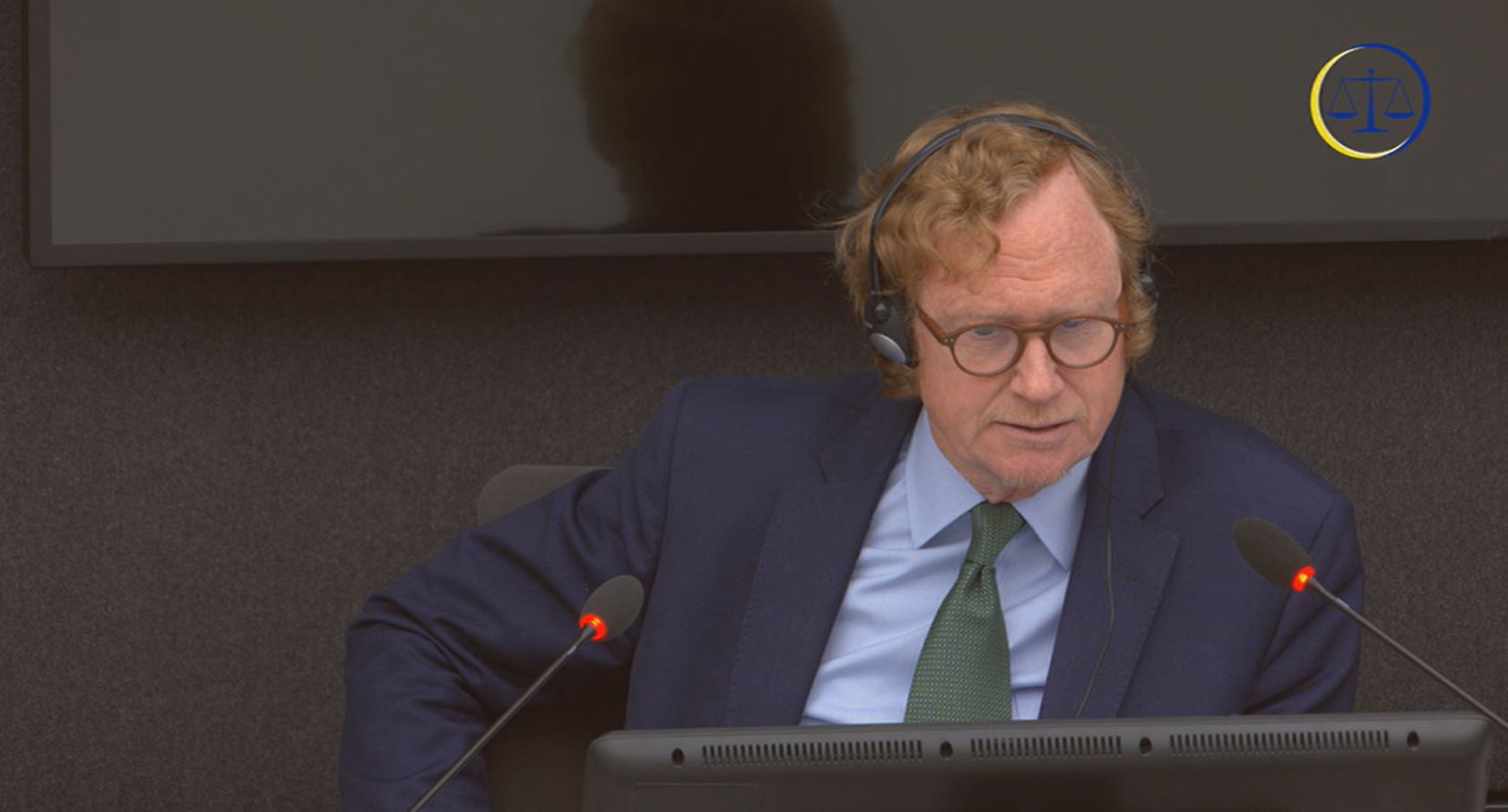A former Austrian diplomat in Serbia told the trial of former Kosovo President Hashim Thaci and three co-accused that the Kosovo Liberation Army claimed to be far more organised than it was.
A former Austrian diplomat in Serbia, Jan Kickert, told the Kosovo Specialist Chambers in the Hague, at the war crimes and crimes against humanity trial of former Kosovo President Hashim Thaci and three co-accused, that the Kosovo Liberation Army, KLA, exaggerated its structure to be taken more seriously by the international community.
KLA members presented the guerrilla army as much more organised than it actually was “to advance their status [and] be taken more seriously in the eyes of the international community,” Kickert told the court on May 28.
“In the summer of 1998, I think they overestimated themselves, their abilities,” he told Thaci’s lawyer, Luka Misetic, explaining that the KLA checkpoints were controlled by farmers and not proper soldiers. He recalled once passing a checkpoint in Malisheve/Malisevo “that was clearly manned by individuals who were not trained or trained. They were simply armed people”.
The defence in the trial has been seeking to prove that the KLA was a loosely structured force without a strong command structure, and that the General Staff could not always control the decisions and actions of operational zone commanders.

Thaci and his three co-defendants, Kadri Veseli, Jakup Krasniqi, and Rexhep Selimi, are accused of having individual and command responsibility for crimes committed against prisoners held at KLA detention facilities in Kosovo and Albania, including 102 murders.
The crimes were allegedly committed between at least March 1998 and September 1999, during and just after the war in Kosovo with Serbian forces. The defendants have pleaded not guilty to all charges.
The witness said he “cannot tell for sure” if he knew the composition of the KLA General Staff and whether the four accused were members of it, as the indictment alleges.
Kickert explained that, mainly based on American intelligence, it was established that the KLA had a structure that was horizontal but also dispersed.
He told the court that international diplomats were less interested in the KLA’s military structure than in finding people to include in important political processes. On May 29, the same witness explained that while the international community did not recognise the provisional government of Kosovo, it considered Thaci “an important leader within the KLA who would be a more valuable ally for us to calm the ethnic situation,” and that he was seen as a political figure more than a military one.
Two other witnesses also testified this week. On Monday, an ethnic Albanian who claimed to have been tortured by KLA members for supporting an opposition force to the KLA, the Democratic League of Kosovo, LDK, testified via video link.
He claimed that without the constant help of his wife and eldest children he would not be alive today, because of his traumatic experience at KLA hands. On May 30, another witness testified. Prosecutors said he and his brother were arrested and tortured near Pristina in June 1999 by a group of armed people with KLA insignia.
According to the indictment, the KLA “carried out a widespread or systematic attack against the civilian population of opponents in Kosovo and areas of northern Albania, from at least March 1998 through September 1999.
“Such opponents included persons who were or were perceived to have been: (a) collaborating or associating with FRY [Yugoslav] forces or officials or state institutions or (b) otherwise not supporting the aims or means of the KLA and later the PgoK [provisional government] including persons associated with the LDK and persons of Serb, Roma, and other ethnicities,” the indictment reads.
Kickert told the court that the LDK considered the KLA a threat to their political monopoly.